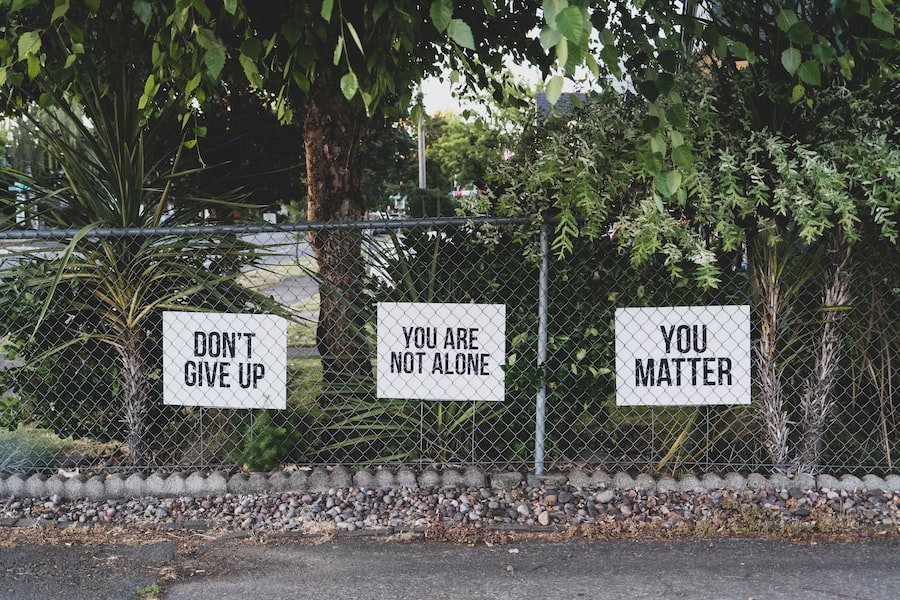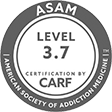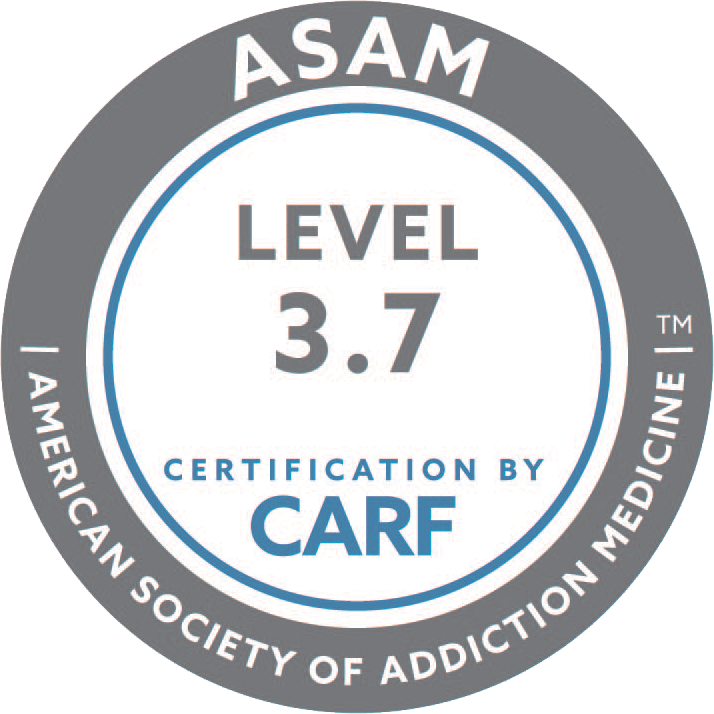Understanding the importance of couples rehab for troubled relationships
Couples rehab is necessary for troubled relationships because it provides a structured and supportive environment for couples to address their issues. Many couples face common challenges in their relationships, such as communication problems, trust issues, and unresolved conflicts. These issues can lead to resentment, distance, and even the breakdown of the relationship if left unaddressed.
Couples rehab offers a space where couples can openly communicate and work through these challenges with the guidance of trained professionals. It provides a safe and non-judgmental space where both partners can express their feelings and concerns. Through therapy sessions, couples can gain a deeper understanding of each other’s perspectives and learn effective strategies to resolve conflicts and improve communication.
The benefits of seeking professional help for relationship issues
Seeking professional help for relationship issues has numerous benefits. First and foremost, therapists are trained professionals who have expertise in helping couples navigate through their challenges. They have the knowledge and skills to guide couples towards healthier patterns of communication and behavior.
Additionally, therapists provide an objective perspective on the relationship dynamics. They can identify patterns that may be contributing to the problems and offer insights on how to break those patterns. They can also help couples uncover underlying issues that may be affecting the relationship.
Finding the right therapist is crucial for successful couples rehab. It’s important to choose a therapist who specializes in couples therapy and has experience working with similar issues. A good therapist will create a safe and supportive environment where both partners feel comfortable expressing themselves.
How couples rehab can help rebuild love and trust
Couples rehab can help rebuild love and trust by providing a structured framework for couples to work through their issues. Therapists use various techniques and strategies to help couples reconnect and rebuild their relationship.
One technique commonly used in couples rehab is rebuilding trust. Trust is the foundation of any healthy relationship, and when it is broken, it can be challenging to repair. Therapists help couples identify the actions and behaviors that have eroded trust and work towards rebuilding it. This may involve setting boundaries, establishing open and honest communication, and practicing forgiveness.
Another technique used in couples rehab is improving emotional intimacy. Emotional intimacy is the deep connection and understanding between partners. Therapists help couples explore their emotional needs and vulnerabilities, allowing them to develop a deeper level of emotional intimacy. This can involve exercises such as sharing feelings, practicing active listening, and expressing appreciation for one another.
The role of communication in couples rehab
Communication plays a vital role in couples rehab. Many relationship issues stem from poor communication or a lack of effective communication skills. Couples rehab focuses on improving communication between partners to foster understanding, resolve conflicts, and strengthen the relationship.
Therapists teach couples effective communication techniques such as active listening, using “I” statements, and expressing emotions in a non-confrontational manner. These techniques help partners express themselves more clearly and empathetically, leading to better understanding and connection.
In addition to teaching communication skills, therapists also address communication barriers that may be present in the relationship. This can include addressing defensiveness, criticism, or stonewalling behaviors that hinder effective communication. By identifying these barriers and working through them, couples can create a healthier communication dynamic.
Addressing underlying issues in couples rehab

Addressing underlying issues is crucial in couples rehab because unresolved issues often contribute to relationship problems. These underlying issues can range from past traumas to unresolved conflicts from the past. Couples rehab provides a safe space for couples to explore and address these issues.
Therapists use various techniques to help couples address underlying issues. This may involve individual sessions where each partner can explore their own personal history and how it may be impacting the relationship. It may also involve joint sessions where both partners can discuss and work through shared issues.
By addressing underlying issues, couples can gain a deeper understanding of themselves and each other. This understanding can lead to increased empathy, compassion, and ultimately, a stronger relationship.
The impact of addiction on relationships and the benefits of couples rehab
Addiction can have a significant impact on relationships, often leading to trust issues, communication breakdowns, and emotional distance. Couples rehab is especially beneficial for couples dealing with addiction because it provides a supportive environment where both partners can address the impact of addiction on their relationship.
Couples rehab for addiction focuses on rebuilding trust, establishing healthy boundaries, and developing effective coping mechanisms. Therapists help couples navigate the challenges of addiction by providing education about addiction, teaching relapse prevention strategies, and offering support for both partners.
Additionally, couples rehab for addiction often involves individual counseling for each partner. This allows each person to address their own personal struggles with addiction and develop the necessary tools for recovery. Individual counseling also provides a space for partners to express their feelings and concerns without judgment.
The benefits of individual counseling in couples rehab
Individual counseling is an essential component of couples rehab because it allows each partner to focus on their own personal growth and healing. Individual counseling provides a safe space for partners to explore their own thoughts, feelings, and behaviors without the presence of their partner.
In individual counseling, partners can address any personal issues that may be affecting the relationship. This may include past traumas, unresolved conflicts, or personal struggles such as anxiety or depression. By addressing these issues individually, partners can gain a better understanding of themselves and how they contribute to the relationship dynamics.
Individual counseling also allows partners to develop healthy coping mechanisms and self-care strategies. This is crucial for maintaining a healthy relationship, as individuals who are emotionally and mentally healthy are better equipped to contribute positively to the relationship.
Developing healthy coping mechanisms in couples rehab
Developing healthy coping mechanisms is essential in couples rehab because it allows partners to manage stress, conflicts, and other challenges in a constructive way. Unhealthy coping mechanisms such as substance abuse, avoidance, or aggression can further damage the relationship.
Therapists in couples rehab help couples identify their unhealthy coping mechanisms and work towards developing healthier alternatives. This may involve teaching stress management techniques, conflict resolution skills, and self-care strategies.
By developing healthy coping mechanisms, couples can navigate through challenges more effectively and reduce the likelihood of falling back into destructive patterns. Healthy coping mechanisms also contribute to overall emotional well-being and can strengthen the relationship.
Rebuilding intimacy and connection in couples rehab
Rebuilding intimacy and connection is a primary goal of couples rehab. Intimacy goes beyond physical affection; it involves emotional closeness, trust, and vulnerability. When a relationship is troubled, intimacy often suffers.
Couples rehab provides a space where partners can work on rebuilding intimacy and connection. Therapists use various techniques such as guided exercises, role-playing, and open discussions to help couples reconnect on an emotional level.
One technique commonly used in couples rehab to rebuild intimacy is the practice of active listening. Active listening involves fully focusing on your partner’s words without interrupting or formulating a response. This technique helps partners feel heard and understood, fostering a deeper sense of connection.
Another technique used in couples rehab is the exploration of shared values and goals. By identifying shared values and goals, couples can find common ground and work towards a shared vision for their future. This shared vision can help rebuild intimacy and strengthen the bond between partners.
The long-term benefits of couples rehab for maintaining a healthy relationship
Couples rehab offers long-term benefits for maintaining a healthy relationship. Through therapy, couples gain the necessary tools and skills to navigate through future challenges and maintain a strong and healthy relationship.
One of the long-term benefits of couples rehab is improved communication. Effective communication is crucial for maintaining a healthy relationship, and the skills learned in couples rehab can be applied in various situations throughout the relationship.
Couples rehab also helps partners develop a deeper understanding and empathy for each other. This understanding and empathy contribute to a stronger emotional connection and can help prevent future conflicts.
Additionally, couples rehab provides couples with ongoing support and resources. Therapists often provide couples with tools, exercises, and strategies that they can continue to use after therapy to maintain a healthy relationship.
Couples rehab is an invaluable resource for troubled relationships. It provides a safe and supportive environment where couples can work through their issues, rebuild love and trust, and develop healthier patterns of communication and behavior. Seeking professional help for relationship issues is essential, as therapists have the expertise to guide couples towards a healthier and happier relationship. If you are struggling in your relationship, don’t hesitate to seek professional help through couples rehab. Your relationship deserves the opportunity to thrive.
Dr. Brooke Gilbertsen is a licensed clinical psychologist who has been working in the field of mental health since 2011 and specifically co-occurring disorders since 2013. Brooke brings her knowledge, experience, and compassion to support clients and their loved ones on their journey toward recovery, health, and holistic healing. Brooke has experience working with a wide range of diagnoses from severe mental illness and personality disorders to depression and anxiety, and believes the underlying cause must be treated in order for freedom from addiction to occur. Brooke treats the whole person, considering mental health diagnoses, genetics, neuropsychology, the context of the family and environment, social relationships, trauma and loss, vulnerability, shame, and self-worth. Brooke applies a wide range of evidenced-based modalities, incorporating mindfulness, spirituality, and psychodynamic approaches to assist clients in the healing process. Brooke is passionate about helping her patients discover the best version of themselves, with a renewed sense of freedom, purpose, and meaning. The model is to build a life that you want to show up to, and don’t need a vacation from.
Brooke completed her B.A. in Psychology in 2008 from San Diego State University. She obtained her M.A. Degree in Clinical Psychology in 2013 from Argosy University, and received her Doctorate in Psychology in 2016 from The Chicago School of Professional Psychology. She is the author of The Impact of Mindfulness on the Quality of Life of Cancer Patients, published in 2017. Brooke has been the keynote speaker for lectures on addiction, and is passionate about helping others find their way as they take the courageous journey toward self-growth.










